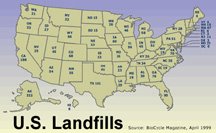Dover firm in top water polluters
By Paul Kostyu
The Canton Repository
COLUMBUS - A Tuscarawas County company is one of the worst water polluters in the state and contributes to Ohio's rank as the worst state for water pollution violations, according to a report released on the 35th anniversary of the federal Clean Water Act.
Dover Chemical exceeded its water permit limits 10 times in 2005, the latest data available, according to Environment Ohio, a nonprofit advocacy group.
Forty-six of the 270 companies and city governments studied exceeded permit limits multiple times for what can be dumped in waterways.
The report details the reason Ohio ranks high on the national list of poor water quality, said Amy Gomberg, a spokesman for Environment Ohio.
"We haven't met the goal (of the Clean Water Act)," she said. "Over half our waterways are too polluted for swimming or fishing."
Data for the report was obtained through a Freedom of Information request of the federal Environmental Protection Agency.
"We're the No. 1 water polluter in the country," Gomberg said, noting that 74 percent of water permit holders have exceeded their limits at least once. "Facilities in Ohio dump more pollution in rivers, lakes and streams than is allowed by law."
She said the report studies major businesses and communities and does not consider minor businesses that also contribute to pollution problems.
Gomberg said the Legislature can take a step toward improving Ohio's environment by passing House Bill 235, sponsored by state Rep. Scott Oelslager, R-North Canton.
The bill, which was introduced in May but has not made it out of committee, would require the public to be notified when untreated sewage is discharged onto land and into waterways. Gomberg also said repeat offenders should face significant fines.
"The costs to the public are real in terms of cancers, neurological disorders and reproductive illnesses," said Tim Buckley, an associate professor of public health at Ohio State University. "The Clean Water Act limits chemical discharges and violations will take a toll on the environment and human health. We must do better so employees and employers are attracted to Ohio."
Gomberg said no one region of Ohio was better than another, but 17 counties in Northeast Ohio had high rates of exceeding permit limits multiple times. She said the Ohio EPA needs to do more to enforce permit limits.
The report can be found at: www.environmentohio.org.
The Canton Repository
COLUMBUS - A Tuscarawas County company is one of the worst water polluters in the state and contributes to Ohio's rank as the worst state for water pollution violations, according to a report released on the 35th anniversary of the federal Clean Water Act.
Dover Chemical exceeded its water permit limits 10 times in 2005, the latest data available, according to Environment Ohio, a nonprofit advocacy group.
Forty-six of the 270 companies and city governments studied exceeded permit limits multiple times for what can be dumped in waterways.
The report details the reason Ohio ranks high on the national list of poor water quality, said Amy Gomberg, a spokesman for Environment Ohio.
"We haven't met the goal (of the Clean Water Act)," she said. "Over half our waterways are too polluted for swimming or fishing."
Data for the report was obtained through a Freedom of Information request of the federal Environmental Protection Agency.
"We're the No. 1 water polluter in the country," Gomberg said, noting that 74 percent of water permit holders have exceeded their limits at least once. "Facilities in Ohio dump more pollution in rivers, lakes and streams than is allowed by law."
She said the report studies major businesses and communities and does not consider minor businesses that also contribute to pollution problems.
Gomberg said the Legislature can take a step toward improving Ohio's environment by passing House Bill 235, sponsored by state Rep. Scott Oelslager, R-North Canton.
The bill, which was introduced in May but has not made it out of committee, would require the public to be notified when untreated sewage is discharged onto land and into waterways. Gomberg also said repeat offenders should face significant fines.
"The costs to the public are real in terms of cancers, neurological disorders and reproductive illnesses," said Tim Buckley, an associate professor of public health at Ohio State University. "The Clean Water Act limits chemical discharges and violations will take a toll on the environment and human health. We must do better so employees and employers are attracted to Ohio."
Gomberg said no one region of Ohio was better than another, but 17 counties in Northeast Ohio had high rates of exceeding permit limits multiple times. She said the Ohio EPA needs to do more to enforce permit limits.
The report can be found at: www.environmentohio.org.













